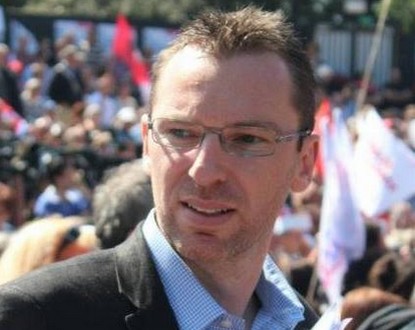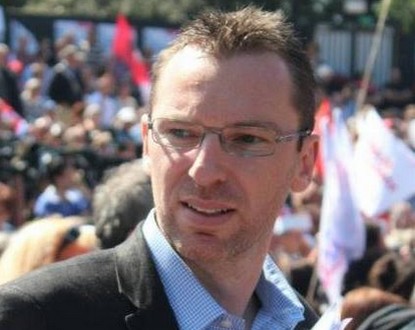The consecutive defeats in municipal, European, and senatorial elections have left wounds that are not ready to heal. Cracks within the party and parliamentary groups, ministers playing their scenes based on personal futures, doubts about the political path to follow, and some genuine or superficial rebellions… If the subject isn’t sick, it’s starting to run a high fever.

There is thus a need for reflection and more so a soul-searching exercise that should provide the means to get out of this deadlock that risks engulfing them for a long time and marginalizing them in the political debate.
The demand is therefore profound and goes straight to the heart of the problem: “What does it mean to be a socialist in the 21st century?”
This is the question that the first secretary of the PS, Jean-Christophe Cambadelis, invited his comrades to think about through the General States of the Socialists.
Locally, it’s the departmental spokesperson Xavier Garcia who has been tasked with implementing this reflection on updating the socialist software.
Nice Premium: Why General States at the Socialist Party?
Xavier Garcia: Because while the values of socialism (social justice, solidarity, economic innovation, individual emancipation, secularism…) are more relevant than ever, current challenges compel us to revisit our software. The State can no longer intervene in the economy in the same way as after World War II. The economy has become globalized, capital and workers are much more mobile, and we have European commitments to uphold. In the same way, the defense of secularism requires an update of our principles and positions on new challenges, notably concerning the place of religion in schools or the issue of Muslim places of worship.
NP: Why not have organized these General States before coming to power?
XG: It is never too late to do well, but indeed it would have facilitated things to have clarified our principles and objectives when we were in opposition. Many of the dissensions that have recently manifested could have been avoided if once and for all we had defined what it means to be socialists in the 2010s. Due to a lack of framework, some think that fidelity to our values is keeping the same discourse as in the 1970s, while others are ready to concede everything to liberal ideology. To avoid falling into these types of eases, it requires a true collective reflection. We did not have it before because it can highlight ideological divisions within our party but also, I think, because by his very divisive way of governing, Nicolas Sarkozy made us intellectually lazy between 2007 and 2012. But if we want to win adherence, it must be around our proposals that this happens, not against those of others.
NP: Concretely, how will these General States take place?
XG: We have already debated in local sections and proposed contributions (already more than 60 for our federation). Based on this, 5 workgroups (economic and social development, Europe, public services, secularism and living together, democracy) have been constituted and are tasked with developing the contributions submitted by activists but also hearing from academics, business leaders, unionists, association leaders, and citizens who wish to debate with the socialists about their present and future orientations. These general states must also be a way to reconnect with the entire left-wing people, even if I know that by doing this we will be outside of our usual comfort zone.
NP: What should 21st-century socialism be for you?
XG: 21st-century socialism must still and always be the ideology of progress. And for that, we must reinvent modes of public action that influence the economy and people’s lives. It can no longer be an administered economy, but by building innovative public policies on education, training of the unemployed, future investments, particularly the ecological transition, I believe politics can still act for the better. The problem is that for about forty years, with the acceleration of globalization, the European left has been more focused on opposing liberalism than proposing new solutions. We have come to adopt defensive positions such as defending social gains. However, to change things, the left needs to be ahead.


